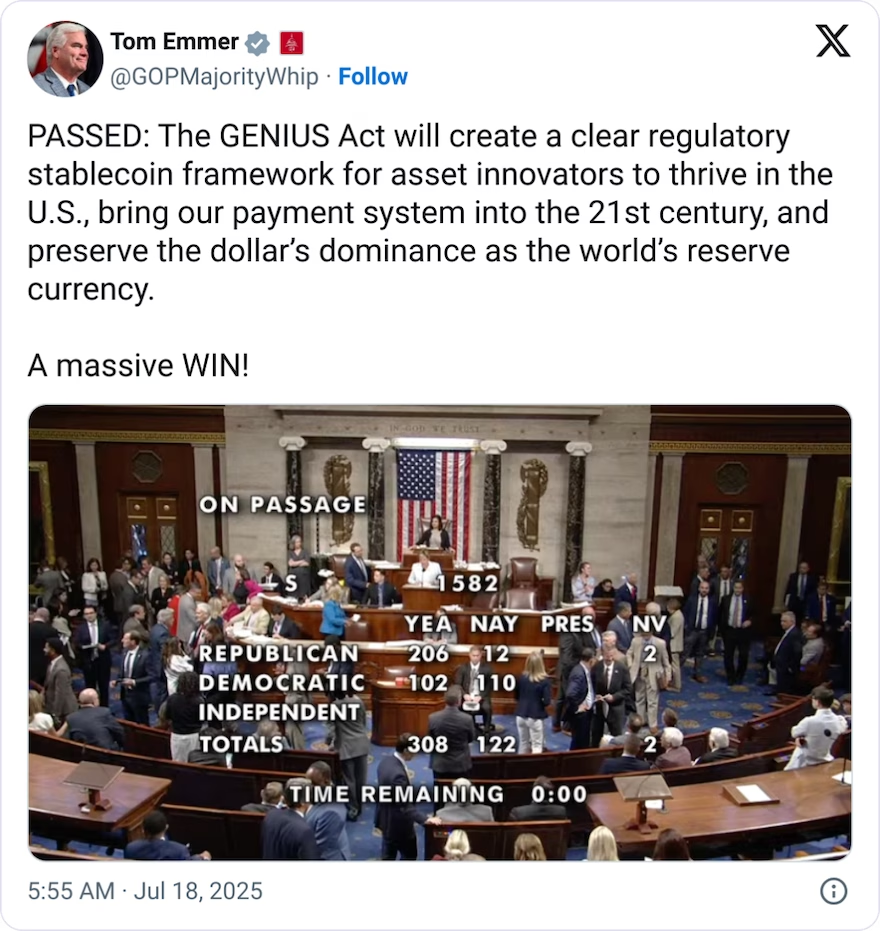The US Congress has concluded its Crypto Week with the passage of the GENIUS Act and is sending other bills to the Senate after successful votes and no small amount of deliberation.
The US crypto industry was jubilant as the House of Representatives passed the GENIUS Act — the industry’s flagship stablecoin bill — and sent it to the president’s desk for his signature. The stablecoin bill received bipartisan support after several rounds of revisions.
The House also passed the CLARITY Act, the long-awaited market structure bill championed by the blockchain industry, as well as Republican Representative Tom Emmer’s bill that would ban the Federal Reserve from issuing a central bank digital currency (CBDC).
The latter two bills will head to the Senate, where the slimmer pro-crypto Republican majority could mean more deliberation and amendments before they get passed.
Crypto Week puts GENIUS Act on President Trump’s desk
The Guiding and Establishing National Innovation for US Stablecoins (GENIUS) Act is now heading to the White House, where US President Donald Trump is expected to sign it at 2:30 pm local time on Friday.
The law will come into effect 18 months after Trump signs it or 120 days after “primary federal payment stablecoin regulators” (i.e., the US Treasury and Federal Reserve) publish the final regulations implementing the GENIUS Act.
Once in full effect, stablecoin issues will be held to a number of standards, including strict reserve requirements and being subject to the Bank Secrecy Act.
Logan Payne, a crypto-focused lawyer at Winston & Strawn, previously told Cointelegraph that GENIUS will compel many American stablecoin issuers to become banks.
Related: Trump eyes executive order to open up retirement funds to crypto: FT
Stablecoin issuers under the GENIUS Act are limited solely to that activity. However, most US stablecoin issuers already offer more services than just making stablecoins. Per Payne, they’ll want to pursue a bank charter, which allows them to issue stablecoins “plus a wider range of activities, but without having to get state-to-state licenses.”
The crypto industry didn’t get everything it wanted in the GENIUS Act. Coinbase CEO Brian Armstrong was adamant that lawmakers include a provision for stablecoin issuers to offer interest on customer stablecoin reserves.

Armstrong argued that “onchain interest democratizes…
Click Here to Read the Full Original Article at Cointelegraph.com News…
























